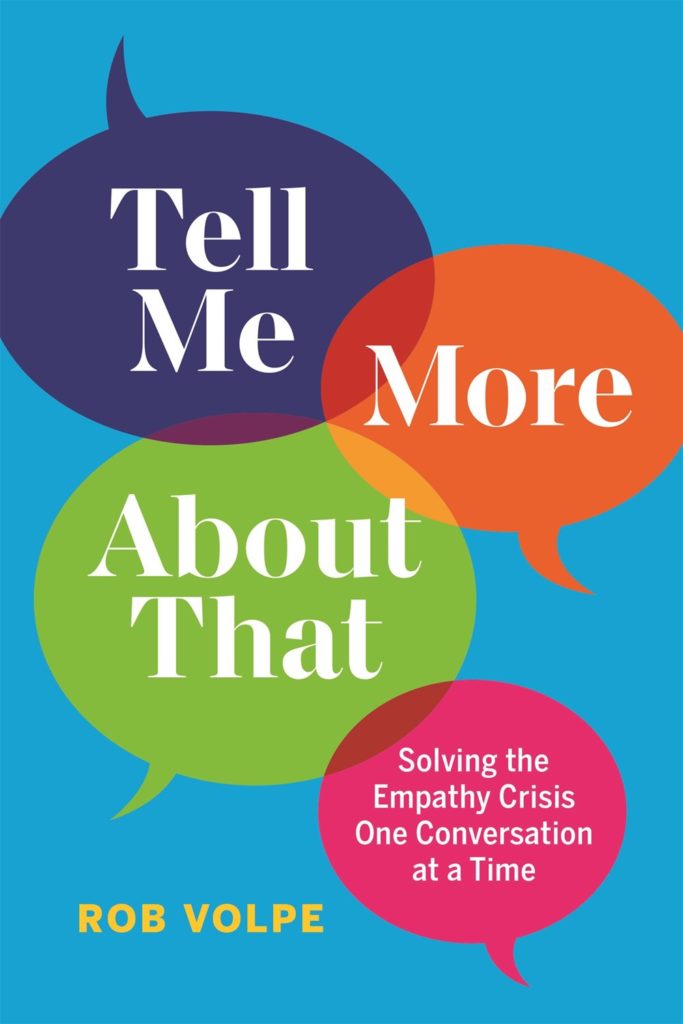In TELL ME MORE ABOUT THAT: Solving the Empathy Crisis One Conversation at a Time, author Rob Volpe explains his five steps to empathy and shows readers how they too can strengthen their own empathy muscles. Today, he joins us with a letter to librarians to talk more about his hopes for his book and to discuss the impact empathy can have on us all.
I was truly moved by the groups of librarians that showed up at the ALA convention in Washington, D.C., to learn more about how to build empathy within their diverse communities. It was meaningful because, in light of current events, I was beginning to question if it was possible to make progress reversing the decline in empathy, compassion, and understanding in our society. And then, there you were: curious minds ready to learn about empathy and how to apply it in your communities. Seeing all those faces renewed my faith in the fact that there are caring and compassionate people out there who, like me, want to see the world change for the better for everyone. Thank you!
Empathy is often misunderstood, yet it’s something we’re all born with. Like a baby must be given the opportunity to strengthen her leg muscles in order to walk, we have to strengthen our empathy muscles. Libraries help people strengthen their empathy skills by providing free reading materials, creating programming that presents new perspectives, offering activities that involve creative and imaginative play, and simply existing as gathering places.
Empathy empowers the skills that we use in life. It’s the fuel that makes us better communicators, collaborators and problem-solvers, which allows us to be better leaders, managers, team members, volunteers, and individual contributors, not to mention partners, family members, neighbors, and citizens of our local communities. Empathy helps us be the best person we are or hope to become.
But there is an empathy crisis. One study in 2010 found a 40% decline in empathy skills among college students from 1979 to 2001. My company, Ignite 360, found in early 2022 that nearly 1/3 of American adults are unable to easily see the point of view of others. Imagine: A third of the people you will interact with today aren’t able to see where you are coming from.

We set out to understand the barriers that get in people’s way when it comes to having empathy and how to overcome those. In doing this, we identified 5 Steps to Empathy: Dismantle Judgment, Ask Good Questions, Actively Listen, Integrate into Understanding, and Use Solution Imagination. In my book, TELL ME MORE ABOUT THAT: Solving the Empathy Crisis One Conversation at a Time, I use my own experiences as an ethnographic researcher to bring each of those steps to life. Going into strangers’ homes has definitely put me in the position of being faced with “otherness” and figuring out how to overcome it to reach a place of connection.
In response to my book, one leadership expert said: “The 5 steps seem simple, but they aren’t easy.” Not many things that are worth doing are easy. As Maya Angelou once put it, “I think we all have empathy. We may not have enough courage to display it.” I know librarians have that courage. I saw it on display in Washington, D.C.

